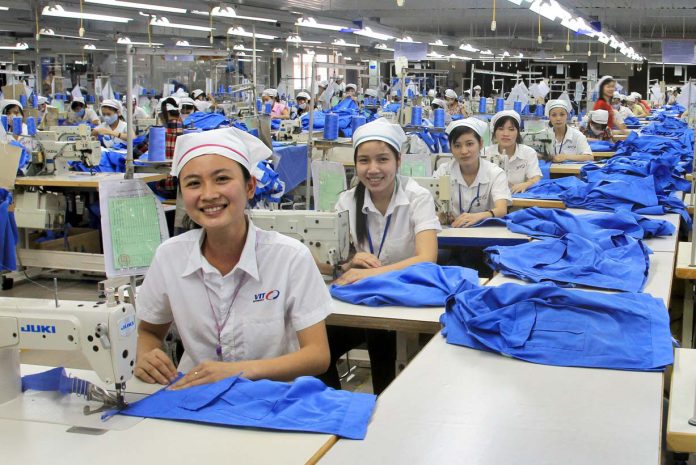The report “Informal employment in Viet Nam through a gender lens”, a joint collaboration by the International Labour Organization (ILO) and the Institute of Labour Science and Social Affairs (ILSSA), found that informal female workers in Viet Nam tend to display more vulnerabilities than informal male and formal female workers.
Education is one reason that makes female informal workers encounter greater disadvantages than men in terms of income, social benefits, and working conditions. The author team stressed that the education level of informal workers is low, especially among young women. In 2021, the proportion of informal workers with technical vocational training was 14.1 per cent, much lower than for formal workers (57.7 per cent). Notably, more than one in ten female (15.3 per cent) and male (11.1 per cent) informal workers did not graduate from primary school. “This is a key hurdle for informal workers, especially young ones, to access vocational training”, the report shows.
Female informal workers were more likely to be own-account or contributing family workers (73.4 per cent of informally employed women) and more frequently found in elementary occupations compared to men. Additionally, informal female workers tend to be concentrated in the agriculture and the services sectors, which have a high prevalence of informality.
Another reason for the disadvantage among females is age. Informal female workers have an older age structure than their male counterparts, with a higher rate of informality among elderly female workers. Informal employment among adults aged 25 years and above tends to rise with age, with this situation most acute among elderly female workers.
Survey and interviews show that women tend to work shorter hours than men because they are responsible for family caregiving. Female informal workers dedicated more time to unpaid care work than their male counterparts, with an average of 4.34 hours per day compared to 2.66 hours, respectively, in 2022. There are few differences between female and male workers in the rationale to choose informal jobs. However, the percentage of female informal workers, as primary family and childcare providers, that sought flexible work times and convenience was slightly higher.
The authors stressed that gender disadvantages due to bias, subjectivity and lack of information in policy formulation and implementation exacerbate gender stereotypes and inequalities in the labour market. The report suggests that Viet Nam needs to enhance access to decent work for all informal workers, with particular attention to female informal workers. Investing in skills development could help informal workers, especially females, to gain access to formal jobs. For informal workers in rural areas, effective implementation of the Vocational Training Programme for Rural Workers during 2021–2030 is key to facilitate job transitions for rural workers.
In urban areas, there is a need to develop and implement vocational training support programmes from the National Target Programme on Sustainable Poverty Reduction for 2021–2025 and the National Employment Fund for migrant workers in informal urban employment. A particular focus on vocational training for unskilled, middle-aged and elderly workers, especially female ones, would help to this end.
In addition, research results show that female informal workers face a dual burden, more so than men, of participating in economic activities and family care duties. However, they also have a weaker voice in family decision-making. Therefore, it is necessary to take measures to improve the status of female workers in the family, as well as creating conditions to balance income-generating work with housework and care responsibilities. The Government may also consider to further promote gender equality through amendments in the Law on Gender Equality and other relevant legislation. “Acknowledging unpaid care, housework and promoting public policies in childcare, subsidies for kindergarten education and care services for the elderly would help reduce the household burden on women,” the report shows.






















